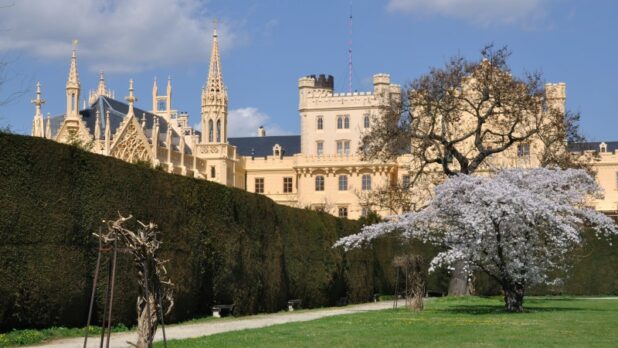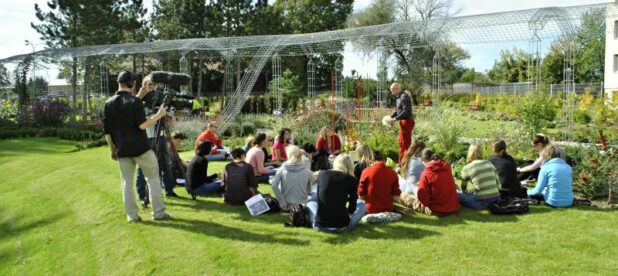The Lednice-Valtice Area, recognized as the largest designed landscape in Europe and a UNESCO World Heritage Site, is more than just a picturesque destination. It is a living classroom where nature, history, and science converge. Nestled in the heart of this extraordinary environment is the Faculty of Horticulture at Mendel University, boasting a rich tradition of education that traces back to the origins of modern horticulture in the Czech Republic.
The faculty offers its students not only top-quality education but also the opportunity to study in a setting where the past meets the future. With its charming chateaux, expansive parks, and historic gardens, the area provides an ideal backdrop for programs in landscape architecture, viticulture, and floristry. Students here are not just passive observers—they actively participate in landscape management and the development of innovative solutions that positively impact the environment and society.

A Wide Range of Study Programs
The Faculty of Horticulture offers bachelor’s, master’s, and doctoral programs that reflect current trends and seamlessly integrate theory with practice. In the bachelor’s programs, you can study Viticulture and Winemaking, Floristic Design, Landscape Architecture, Nursery Production, Horticulture, Garden and Landscape Realizations, Green Space Management, Circular Horti-Production, and Processing Technologies and Food Quality. Master’s programs include Landscape Architecture, Viticulture and Winemaking, Green Space Management, Horticulture, Circular Horti-Production, and Processing Technologies and Food Quality. For those aspiring to a scientific career, the faculty provides doctoral programs such as European Horticulture, Ph.D. in Horticulture, Landscape Architecture – Ph.D., and Horticulture – Ph.D..
A Diverse Selection of Courses
Students can choose from a rich variety of courses covering topics from landscape architecture to cutting-edge biotechnologies. Popular courses include Garden and Landscape Heritage Studies, which introduces students to the history of garden design and features excursions to landmarks. Molecular Plant Pathology equips students with skills in diagnostic methods like PCR and DNA sequencing. Tropical and Subtropical Fruit Production focuses on cultivating fruits in different climates, while Sommelier offers expertise in wine sensory evaluation and food pairing. Additional courses include Floriculture, Alternative Production in Horticulture, GIS and Landscape Interpretation, Protected Cultivation, Special Plants, and Quality of Plant Products. This wide-ranging selection reflects the faculty’s interdisciplinary focus and enables students to explore new applications of their knowledge.

Unique Facilities and High-Quality Research Outputs
The Faculty of Horticulture is equipped with state-of-the-art laboratories, allowing students to connect theoretical knowledge with hands-on experience. Modern research centers, experimental vineyards, and specialized facilities provide excellent conditions for both education and scientific work. The faculty prioritizes the production of high-quality research outputs with international impact, contributing to innovations in horticulture, landscape architecture, and biotechnology. Through engagement in research projects and collaboration with industry partners, our graduates are well-prepared for successful professional careers.
The Faculty of Horticulture at Mendel University in Lednice boasts a diverse collection of genetic resources and living plant collections, emphasizing its role as a hub for both education and research in horticulture. Among its unique assets are orchards preserving gene pool of fruit trees, including apricots and peaches, as well as specialized collections of Asian pears and plums. The faculty also maintains gene pool collections of grapevines, medicinal plants, and perennial vegetables, alongside selected ornamental flowers. These resources not only support academic pursuits but also advance innovation in horticulture and sustainable landscape management, reinforcing the faculty’s interdisciplinary focus and contribution to the field.






Leave a Reply